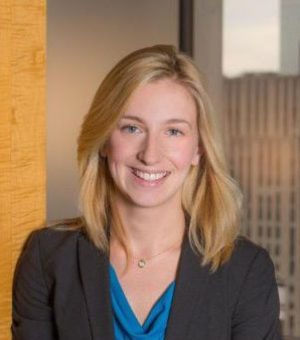
It’s Time to Revisit Many of the Work Barriers People with Criminal Records Face
Editor’s Note: A version of this opinion piece was published by The Hill on April 9, 2021.
When the first COVID-19 wave hit the United States last year, state officials worried they wouldn’t have the right equipment to meet patient demand. Today, it’s not the ventilators that are in short supply. It’s the people operating the ventilators who are needed to save lives.
In November, a number of states were seeking respiratory therapists willing to temporarily relocate, but hospital officials said most of their pleas went unanswered as COVID-19 deaths surged nationwide. Many who aspire to hold this now-crucial position never had a chance to answer the calls for help because of an unexpected barrier they face: a criminal record.
Respiratory therapists are required by most states to have licenses, certifications, or other credentials. But statutes in Alabama, California, Colorado, Florida, Hawaii, Idaho, Kansas, Louisiana, Massachusetts, Missouri, Oregon, Pennsylvania, and Wyoming specifically restrict or deter people who have criminal records — even decades-old misdemeanors in some states — from being licensed as respiratory therapists. Broader laws governing health care licensure in general can also prevent people with a criminal record from pursuing a career as a respiratory therapist in other states.And it doesn’t stop there.
In some states, a misdemeanor could prevent someone from becoming an EMT. Other state laws limit access to public works jobs for certain felonies or misdemeanors. And an embalming license can be denied in some states for an ambiguous “crime involving moral turpitude.” The federal government labeled all of these professions essential to meet the demands of the COVID-19 economy.
In the best of circumstances, people with criminal records have a difficult time accessing jobs. One study from the Prison Policy Initiative showed that people with records suffered from an alarmingly high 27 percent unemployment rate in 2008 — almost five times higher than the unemployment rate for the general public at that time. People recently released from prison were the most likely to be unemployed or underemployed, with a 32 percent unemployment rate among people released in the prior two years. These hurdles particularly impact people of color: whereas white job applicants with criminal records have a callback rate of 17 percent, Black applicants with criminal records receive callbacks at a rate of only 5 percent.
Many factors make the job market harder for people with records, including limited access to education and the pervasive stigma surrounding criminal records. And legal barriers to employment are another significant driver of the problem. There are more than 29,000 state and federal regulations that impede access to employment, professional licensing, and entrepreneurship on the basis of a criminal conviction. Health care employment and licensure is more affected by collateral consequences than any other industry, with nearly 7,500 regulatory barriers.
And these laws don’t just affect a small fragment of the population. Millions of Americans have a criminal record of some kind, and we know that having a job is a key factor in reducing one’s chances of committing a crime in the future. To shut such workers out of the few areas of our economy that are growing is to trap even more of them in unemployment, a result that not only hurts them and the people they support financially, but also deprives the rest of us of benefiting from a group of highly motivated workers.
COVID-19 has left state and federal policymakers with painfully long to-do lists. But it also provides them with a unique chance to rebuild their workforce and create an inclusive economy—one that affords opportunities to all, gives businesses access to untapped talent, and helps make our communities safer.
If COVID-19 has any bright spot, it is that it has forced many of us to reflect on what matters most. In such moments, the health of our families looms large. It’s painful to think about the moment when someone I love might need acute respiratory care; even more so to imagine that we could miss out on such care because we’ve denied a group of our fellow Americans the opportunity to help.
Photo by LightFieldStudios on Envato Elements.
About the Author











